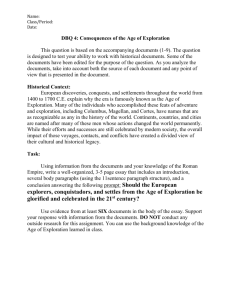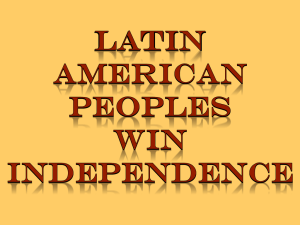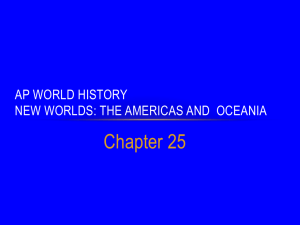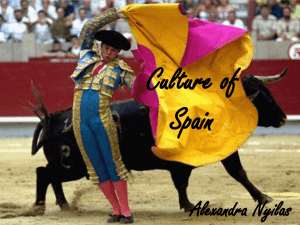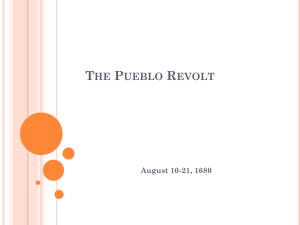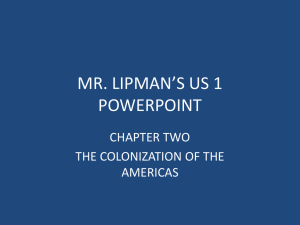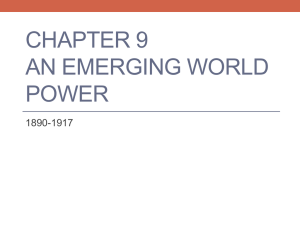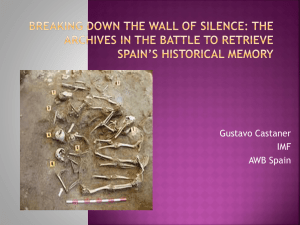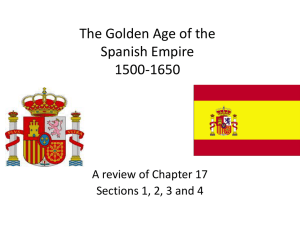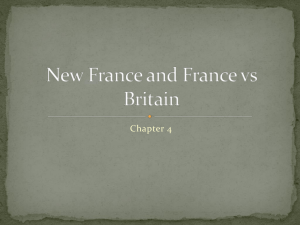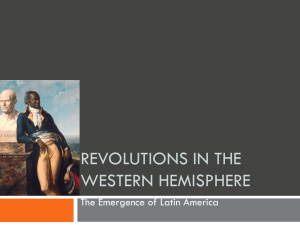EUROPEAN COLONIZATION
advertisement
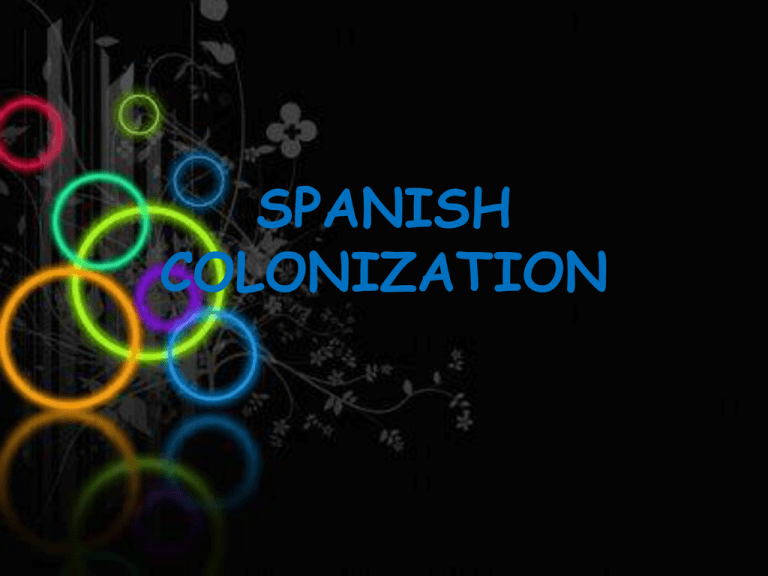
SPANISH COLONIZATION BEGINNING • With the arrival of the Europeans following Christopher Columbus's voyages, the indigenous elites, such as the Incas and Aztecs, lost power to the heavy European invasion What kind of people were the original Spanish settlers? Spanish settlers, were primarily poor nobles from the impoverished west and south of Spain and poor soldiers with noble titles obtained during the war against the Moorish (they had the titles of hidalgos and knights) who came to America with hopes of finding riches. They built the aristocracy of the new cities, and also Governors, mayors and all the kingdom staff were appointed between them. What happened with the Native Americans during the colony? • Native Americans who survive to the conquer wars were reduced to a condition of virtual slavery and were forced to work in European plantations and mines. However, some priest like Dominican Juan Bartolomé de las Casas worked to avoid their maltreatment arguing that Americans were being doted with souls, as all other human beings. • Then, new laws were created to protect them. Finally, most of the American Indians of our country were subjugated by the Spaniards working as servants. CASTE SYSTEM: RACE • During the Spanish colonial period, Spaniards developed a complex caste system based on race, which was used for social control and which also determined a person's importance in society. There were four main categories of race: – Peninsular : a Spaniard born in Spain. – Criollo : a person of Spanish descent born in Mesoamerica. – Indio : a person who is a native,or indigenous to, Mesoamerica, – Negro : a person of African slave descent. Persons of mixed race were collectively referred to as "castas” • Mestizos: People with one Spanish parent and one Indian parent. • Cholos: or Coyotes: People with one Indian parent and one Mestizo parent. • Mulatos or Pardos: People of the first generation of a Spanish and Black mix. • Zambos: People who were of mixed Indian and Black ancestry. PURE RACES • Spaniards (Españoles): • These were persons of Spanish descent • Indians (Indios): The second of the original "races" in Spanish America, the law treated them as minors. • Blacks (Negros): With Spaniards and Indians, this was the third original "race" in this paradigm, but low on the social scale because of their association with slavery. Social Organization Spaniards (Españoles): These were persons of Spanish descent. People of other European descent who had settled in Spanish America and adapted to Hispanic culture Criollos or Crioles : (Españoles criollos or Españoles americanos): People of Spanish ancestry (People who have a direct lineage from Spain but were born in the Americas. Mestizos, mulatos and zambos : Persons with one Spanish parent and one Indian parent. Indians (Indios): The second of the original "races" in Spanish America, the law treated them as minors, and as such were to be protected by royal officials, but in reality were often abused by the local elites. Blacks (Negros): With Spaniards and Indians, this was the third original "race" in this paradigm, but low on the social scale because of their association with slavery. SPANIARDS- PENINSULARES • Colonial society relied on "purity of blood" as a basis for stratification. The elites at the top of the social pyramid were peninsulares, persons of Spanish descent born in Spain. Peninsulares held political power and social prestige in the society CRIOLLOS • Below them were the criollos, those of Spanish descent born in the colonies. This group had limited access to the higher circles of power and status. For generations the criollos accepted a position of inferiority to the peninsulares, but in the late eighteenth century their acquiescence was transformed into a resentment that ultimately led to their fight for independence MESTIZOS • Next in importance and the most numerous were the mestizos, persons of mixed Spanish and Indian descent who were free but relegated to positions of low prestige. Most Indians gradually became absorbed linguistically or lost their identity through mixture with other peoples; by the late 1980s, Indians constituted only 1 percent of the Colombian population. BLACK AND ZAMBO • Black African slaves and zambos, persons of mixed African and Indian descent, were at the bottom of the social scale and were important only as a source of labor.
